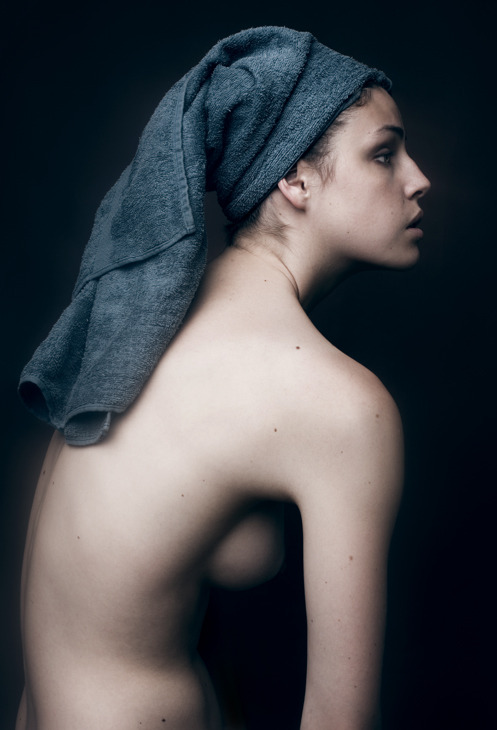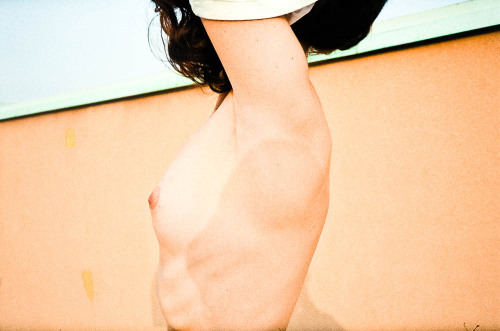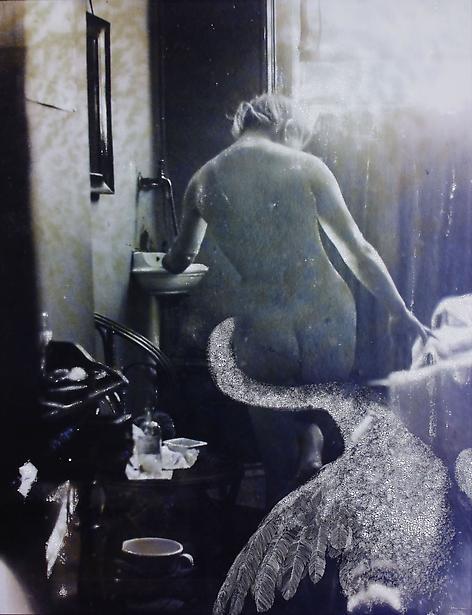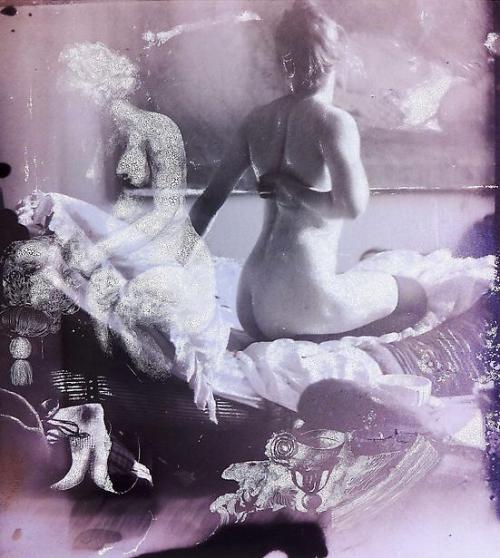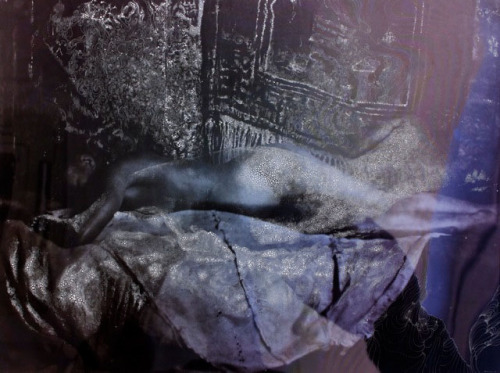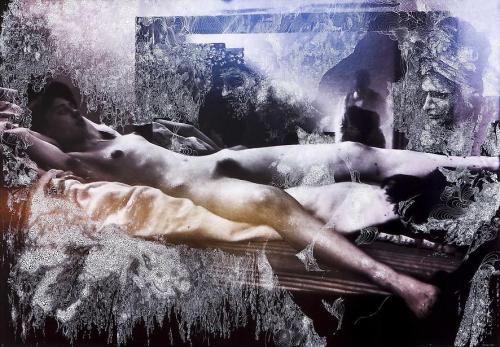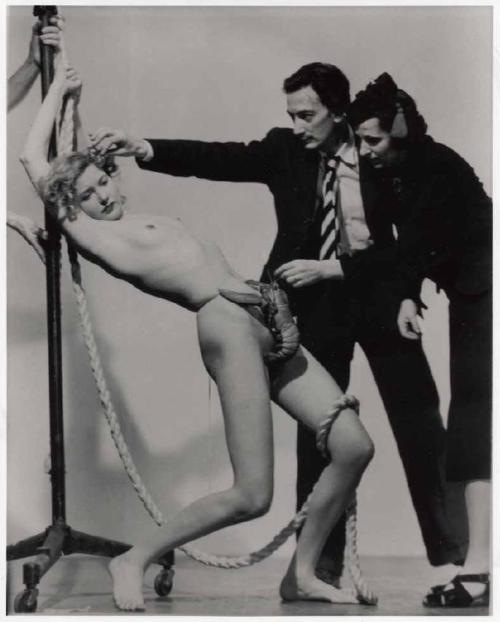Saturday, April 23, 2011
Wednesday, April 20, 2011
Sunday, April 17, 2011
Thursday, April 14, 2011
Monday, April 11, 2011
Saturday, April 09, 2011
Wednesday, April 06, 2011
Julie Rrap: Body Double
Julie Rrap Boat Tail (BT) (2004)
from the series Soft Targets
pure pigment prints on acid-free rag paper
image size 142.5 x 173cm paper size 152 x 173cm
Julie Rrap: Body Double
For over twenty-five years, the Sydney-based artist Julie Rrap has sought to disclose and unravel the ways in which the human body has been defined throughout western history and culture. She does so with a seductive wit, an outward display of pleasure, and a determination to match the gaze of her audiences.
Deeply based in the story of the body, Rrap’s art is always a surprise, resulting from an individual ingenuity that aligns with a feminist strategy to continuously seek and present the unpredictable and unanticipated.
Julie Rrap Overstepping (2001)
digital print 120 x 120 cm
Julie Rrap Yaw 2004
from the series Soft Targets
digital print 120 x 120 cm
This exhibition surveys Rrap’s work over three decades and focuses on three key themes in her work: the trickster, the body double and the ways in which her work represents the body as a fragmented entity.
Often playing the role of thief, vixen or mischievous impostor, Rrap has worked as a
kind of ‘trickster’, literally ‘occupying’ the work of some of western art’s most famous paintings or pop-cultural images. During the 1980s, artists such as Edvard Munch provided vehicles for Rrap’s exploration of the ways in which the female nude had been represented through the history of art, as in her 1984 series Persona and Shadow. ‘The historical paintings’, she explains, ‘were really stepping-off points for me to do a performance’. By mobilising these well-known images, Rrap unravels the condition of woman as ‘other’ and this strategy has persisted in her work through to the A-R-MOUR series (2000).
Making the plaster casts for the series Monument
Location: Crawford Castings. Photograph: Jacky Redgate
Julie Rrap Monument (1995 - 1996)
fibreglass and bronze dust, camera and monitor
148 x 80 x 20cms
Throughout the 1990s until the present day, Rrap has used her own body in various
postures through shadow play, masquerade, mirror and mime. She performs as a ‘body
double’ for the still and moving camera.
Drawing on the notion that gender is in itself a performance, Rrap has forged the theme of the stand-in, a prosthetic body double, and her works often invite viewers to imagine themselves in such a role. This is evident in sculptural installations such as Vital Statistics(1997) and Hard Core/Soft Core (2006) through to the most recent work in this exhibition, Body Double (2007).
Julie Rrap Puberty 1984
from the series Persona and Shadow
cibachrome print approx. 194 x 105cm
Increasingly, Rrap represents a body in pieces, inevitably raising ethical and aesthetic issues in relation to how we depict, interpret and understand the human form. Such issues have been discussed both in broad social terms (for example in relation to the Abu Ghraib
photographs or in connection with genetic engineering), as well as in the field of art. For
Rrap, the body and its representation is porous, excessive and oozing with a sense of tease
and trickery. In works such as Hairline Crack (1992), Porous Bodies (1999) and Overstepping (2001), this body oversteps the margins of comfort, taking us into the zone of transgression. It is, however, always in the company of a foil that more often than not,
allows us to laugh out loud with the artist.
Victoria Lynn, Guest Curator
Julie Rrap Conception 1984
from the series Persona and Shadow
cibachrome print approx. 194 x 105cm
Julie Rrap Body Rub 2 (2006)
archival print on watercolour paper
image size: 199 x 100 cm paper size: 210 x 110cm
all photographs Courtesy the artist and Roslyn Oxley9 Gallery, Sydney and Arc One Gallery, Melbourne © the artist
further reading: Julie Rrap: Body Double Education Kit (pdf)
Julie Rrap: Body Double at MCA Sydney till 28 January 2008
via placeboKatz
Labels:
art,
collage,
paint over,
performance
Sunday, April 03, 2011
Sebastiaan Bremer
Sebastiaan Bremer
Nudes and Revolutions
New York Edwynn Houk Gallery is pleased to announce the opening of an exhibition of new works by Sebastiaan Bremer (Dutch, b. 1970). The show runs through Saturday, 23 April 2011.
Bremer’s technique is novel and utterly hybrid. Using various inks, he draws directly on slightly blurry c-print enlargements of photographs, and often adds splotches and streaks of photographic dye. Almost always, the underlying photographic images have much to do with personal and family history; a best friend from Bremer’s teenage years, a shot of himself as a kid, a view of a room taken from under his grandmother’s piano, his family on vacation, a former girlfriend. These are the unpretentious snapshot images, the family album images, the photographic mementoes of a life that Bremer meticulously and obsessively draws on. So meticulously, in fact, and with such fine, tiny lines that you figure he either uses a magnifying glass or is in a trance (neither is the case). In some of Bremer’s works the underlying image is quite clear, while in others it’s almost totally obscured, but in any event one sees it through a scrim or a veil of intense surface activity, which can be at once elaborately ornamental, psychedelic, playful (replete with suggestions of doodling), turbulent, and downright magical. Always, Bremer’s found photographs become dreamlike and fantastical, and two opposite impulses are fused; documentation and hallucination. Moreover, while Bremer admits to a high level of automatism in devising his drawings, you also sense that this automatism involves a great deal of complex human feeling, ranging from harrowing fears and losses to whimsy and blissful response. (Excerpted from “The more you look, the more you see” by Gregory Volk, 2004)
Labels:
fine nudes
Friday, April 01, 2011
- Salvador, Gala, & a Strategically Placed Lobster
The Pulchritude of Dalí
- Salvador Dali, Wife Gala, & a Strategically Placed LobsterFor Dali’s Dream of Venus exhibit, 1939 World’s Fair
Photo by Murray Korman
via Strawbergie
Labels:
art,
Salvador Dali,
vintage
Subscribe to:
Comments (Atom)
